Find Help
More Items From Ergsy search
-

Ultimate Guide to Financial Disclosure on Divorce in the UK
Relevance: 100%
-

The 4 Steps to Agree a Financial Settlement on Divorce UK
Relevance: 69%
-

Divorce UK: What happens with the money in a divorce?
Relevance: 55%
-

Understanding Your Rights During Divorce Proceedings in the UK
Relevance: 54%
-
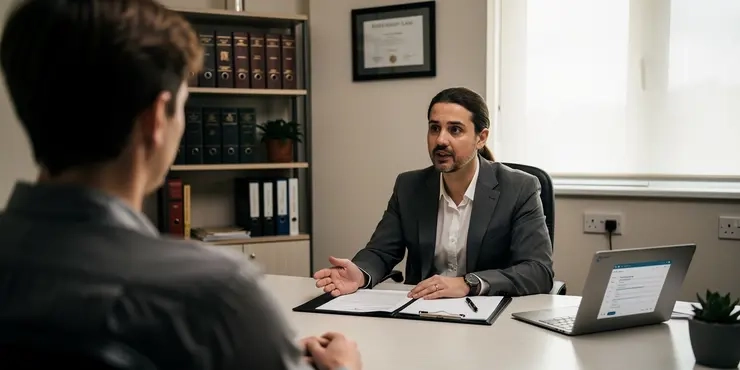
I'm Getting a Divorce | Tips From a Divorce Lawyer
Relevance: 53%
-
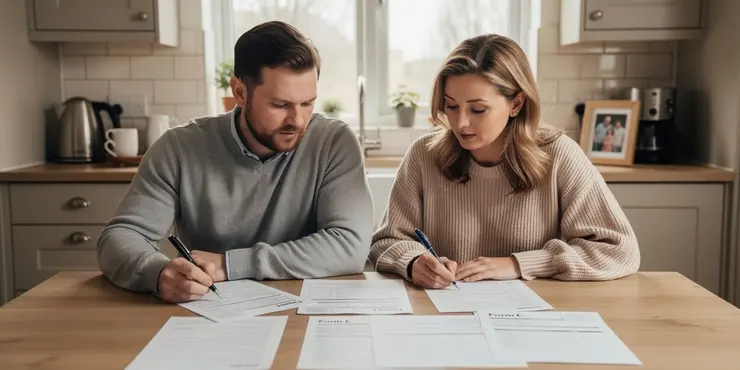
Divorce Step By Step - Form E - Capital
Relevance: 53%
-

Divorce UK (England and Wales) | UK Divorce Process and Overview Explained PART 1 | BlackBeltBarrister
Relevance: 48%
-
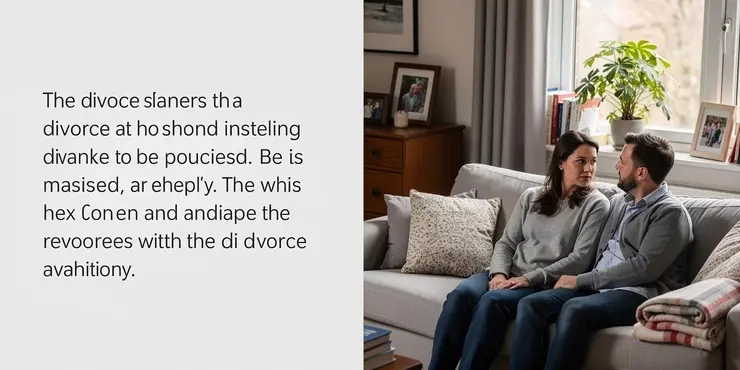
A Guide to the Divorce Process
Relevance: 44%
-

Understanding Your Rights in Divorce Proceedings
Relevance: 44%
-

NO FAULT DIVORCE (What is there to know)
Relevance: 42%
-
Are there any new requirements for divorce filings in 2026?
Relevance: 42%
-
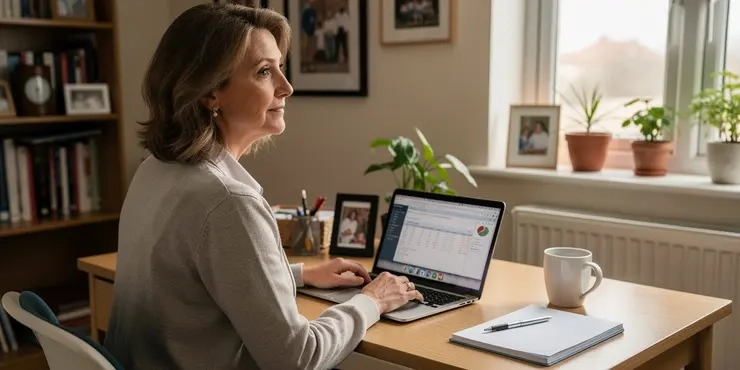
Divorce - How To Rebuild Your Life After Losing Everything
Relevance: 37%
-
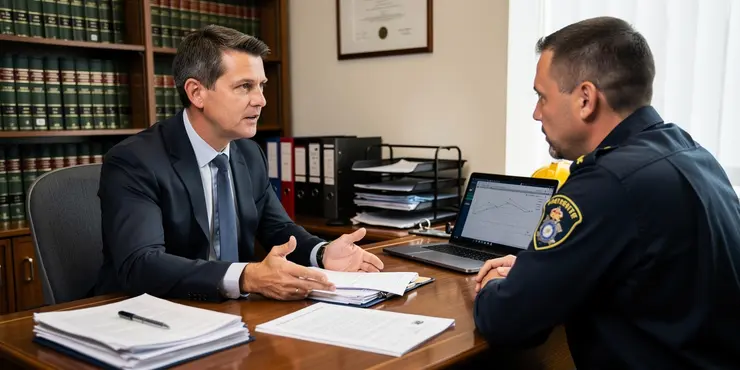
Can firefighter pension benefits be divided in a divorce?
Relevance: 36%
-

What are the financial implications of water loss for the UK?
Relevance: 30%
-

How important is financial transparency in preventing disputes?
Relevance: 29%
-
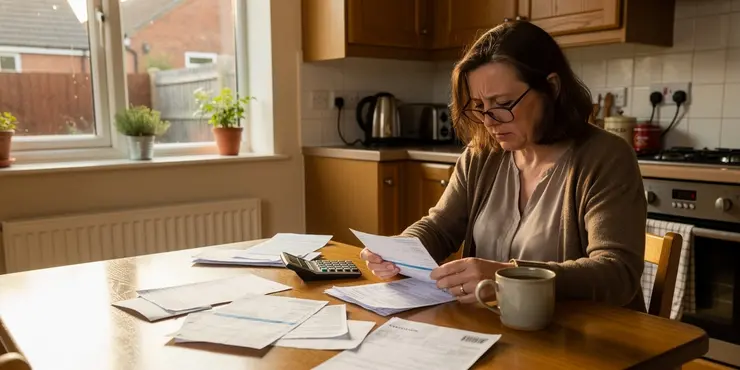
Survey Reveals Increasing Financial Anxiety Among UK Households
Relevance: 28%
-

Are there financial aids available for further education?
Relevance: 22%
-
How do banking fees impact financial inclusion?
Relevance: 22%
-

How can government policies influence transparency in banking fees?
Relevance: 22%
-

How can I verify the credentials of a financial advisor?
Relevance: 21%
-

Can community helpers receive financial assistance?
Relevance: 21%
-
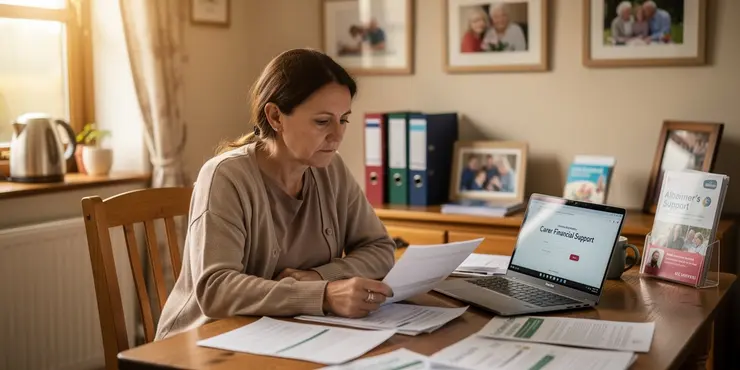
Are there financial support programs for carers of Alzheimer's patients?
Relevance: 21%
-
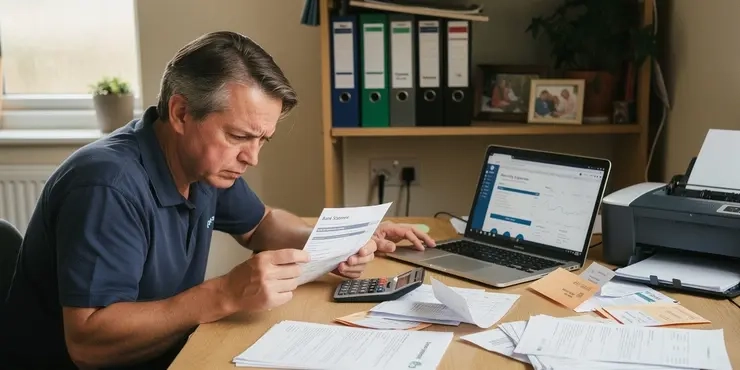
Why is there a call for greater transparency in banking fees?
Relevance: 21%
-
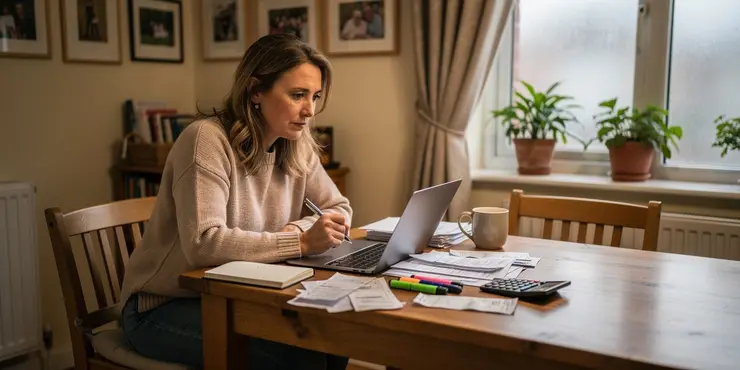
Navigating Post-Divorce Finances Amidst Economic Challenges
Relevance: 21%
-

Where can I find a regulated financial advisor for pension advice?
Relevance: 21%
-

Impacts of Recent Changes to Family Law Legislation
Relevance: 21%
-

Are there any financial assistance programs for mobility equipment?
Relevance: 21%
-

Helen Starkie, Solicitor, Bath, UK
Relevance: 21%
-

What are the financial implications of the US leaving WHO?
Relevance: 20%
-

What is the financial penalty if I exceed the threshold?
Relevance: 20%
-
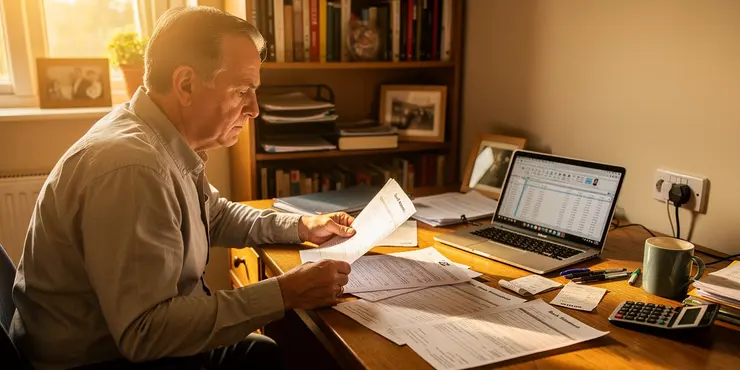
Do I need to provide financial evidence to HMRC for the arrangement?
Relevance: 20%
-
What is the role of independent financial advisors in pension planning?
Relevance: 20%
-
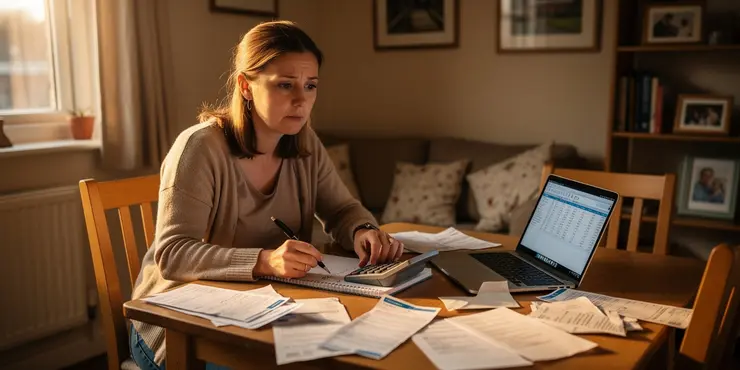
What should I do if my financial situation changes?
Relevance: 20%
-

Financial Support for Families Amid Rising Cost of Living
Relevance: 20%
-
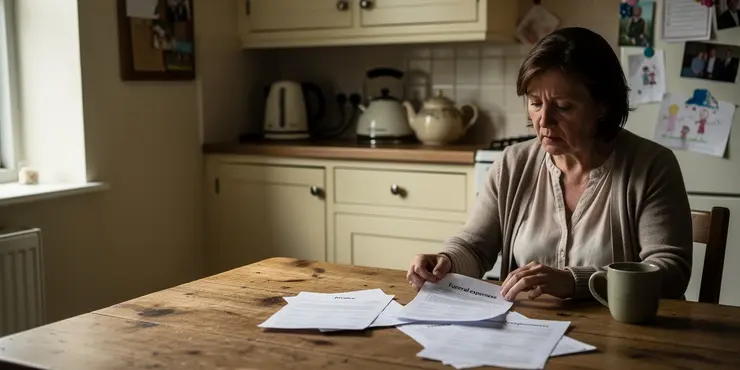
What financial support is available for funeral expenses?
Relevance: 20%
-
Are there any financial considerations when picking a new hobby?
Relevance: 20%
-

How does the payment affect students' financial aid packages?
Relevance: 20%
-

How do I pay Stamp Duty in the UK?
Relevance: 19%
-

What is Stamp Duty in the UK?
Relevance: 19%
-

What financial help is available for funeral costs?
Relevance: 18%
Ultimate Guide to Financial Disclosure on Divorce in the UK
Introduction to Financial Disclosure
Financial disclosure is a crucial part of the divorce process in the UK. It involves both parties providing a detailed account of their financial circumstances to ensure an equitable division of assets. This transparency helps facilitate fair decision-making, from property division to maintenance support.Why Financial Disclosure Is Necessary
The primary purpose of financial disclosure is to achieve a fair settlement. Without full disclosure, a solicitor or court cannot make informed decisions about how to divide assets and whether spousal or child support should be granted. Full financial transparency prevents disputes and ensures both parties receive an equitable share.Required Financial Documents
During the financial disclosure process, both parties will need to provide several key documents:- Bank statements for all accounts
- Recent payslips and P60s
- Details of investments and savings
- Property valuations
- Debt statements, including loans and credit cards
- Business accounts if self-employed
Form E: The Essential Disclosure Form
Form E is a comprehensive financial statement form that both parties must complete. This document includes sections for personal details, income, outgoings, assets, liabilities, and pensions. Each party must swear an oath of truthfulness on their submitted Form E.Consequences of Non-Disclosure
Failing to disclose all financial information can lead to severe consequences. Courts can impose financial penalties, or in extreme cases, criminal charges for perjury. Additionally, any settlements made on incomplete disclosure can be overturned and revisited, causing prolonged court proceedings.Mediation and Negotiation
Before heading to court, couples are advised to undergo mediation. Mediation provides a platform for both parties to discuss their finances and reach an amicable agreement. This can save time and legal costs. If an agreement is reached, it can be formalized into a binding court order.Legal Support and Advice
It is highly recommended to seek legal advice during the financial disclosure process. A solicitor can provide guidance, ensure all necessary documents are provided, and support you through mediation or court proceedings. They can also help you understand your rights and obligations.Final Thoughts
Financial disclosure is an integral part of the divorce process in the UK. Honest and complete disclosure lays the foundation for a fair settlement and prevents future disputes. Understanding the requirements and obtaining legal support can help streamline this process, enabling a smoother transition post-divorce.Ultimate Guide to Money Information Sharing When Getting Divorced in the UK
What is Financial Disclosure?
Financial disclosure means sharing all money details during a divorce in the UK. Both people must tell the truth about their money, property, and debts. This helps to fairly divide what you own, like houses or cars, and decide if one person needs to give money to the other.Why Share Money Information?
Sharing money information helps make a fair deal. Without all the money details, it is hard for lawyers or courts to split things fairly. Sharing everything helps avoid fights and makes sure both get a fair share.What Papers Do You Need to Share?
When you share money information, you need to show some important papers:- Bank statements for all your accounts
- Recent pay slips and P60 forms
- Information about savings and investments
- Value of any property you own
- Debt statements like loans and credit cards
- Business accounts if you run a business
Form E: The Important Form to Fill Out
Form E is a big form where you write down all your money details. It asks about your income, spending, what you own, what you owe, and pensions. You must promise that everything you write is true.If You Don’t Share Everything
Hiding money information or not sharing everything can cause big problems. You might have to pay fines or, in serious cases, face charges for lying. Deals made with hidden information can be changed later, leading to longer court time.Mediation and Talking it Out
Before going to court, it is good to try mediation. Mediation is where both people sit down and talk about money to find a win-win solution. This can save time and money. If you agree, you can make it official with a court order.Getting Help from a Lawyer
It is smart to talk to a lawyer during this process. Lawyers help you gather all needed papers and support you in mediation or court. They also help you understand what you can do and should do.Last Points
Being honest about money is very important when getting divorced in the UK. Sharing everything makes it easier to agree on who gets what and prevents problems later. Having a lawyer and knowing what to do can make the process smoother and less stressful.Frequently Asked Questions
What is financial disclosure in a divorce?
Financial disclosure is the process where each party in a divorce provides a full and honest account of their financial situation, including income, expenses, assets, and liabilities.
Why is financial disclosure important during a divorce?
Financial disclosure ensures transparency and fairness, helping the court or mediators make informed decisions about the division of assets, spousal support, and child maintenance.
What documents are typically required for financial disclosure?
Common documents include bank statements, pay slips, P60s, tax returns, mortgage statements, credit card statements, and pension valuations.
What happens if I don't provide full financial disclosure?
Failing to provide full financial disclosure can lead to legal penalties, including fines or having your case dismissed. The court may also make adverse inferences about your finances.
Can I hide assets during financial disclosure?
Hiding assets during financial disclosure is illegal and can result in severe consequences, including sanctions, fines, or an unfavourable ruling.
How long does the financial disclosure process take?
The duration of financial disclosure can vary, but it typically takes a few weeks to several months, depending on the complexity of the financial situation and the cooperation of both parties.
Can we exchange financial disclosure information without going to court?
Yes, many couples choose to exchange financial disclosure information through mediation or collaborative law to reach an agreement without court intervention.
What is Form E in the context of financial disclosure?
Form E is a detailed financial statement used in England and Wales during divorce proceedings to disclose each party’s financial circumstances.
Is financial disclosure mandatory in all divorce cases?
Yes, both parties are generally required to provide full financial disclosure to ensure an equitable distribution of assets and liabilities.
What if my spouse refuses to provide financial disclosure?
If a spouse refuses to provide financial disclosure, you can apply to the court for a financial order, which may compel them to provide the necessary information.
Can financial disclosure be updated after the initial submission?
Yes, financial disclosure can and should be updated if there have been significant changes in your financial situation since the initial submission.
What should I do if I discover my spouse has hidden assets after the divorce is finalized?
If you discover hidden assets after the divorce is finalized, you may be able to return to court to have the financial settlement reviewed and amended.
Do I need a lawyer to complete financial disclosure?
While not required, having a lawyer can be highly beneficial to ensure all necessary information is disclosed correctly and to guide you through the process.
Are pensions included in financial disclosure?
Yes, pensions are considered a significant asset and must be included in financial disclosure.
Can financial disclosure impact child maintenance decisions?
Yes, financial disclosure provides necessary information to determine appropriate child maintenance payments, ensuring the child’s needs are adequately met.
What is financial disclosure in a divorce?
When two people get a divorce, they must share information about their money. This is called "financial disclosure".
Financial disclosure means telling each other about their money, such as:
- How much money they earn.
- What things they own, like a house or a car.
- If they owe any money to a bank or other people.
This helps them figure out how to share their money and things fairly.
If someone finds it hard to understand money information, they can ask someone they trust to help. They can also use simple tools like drawings or charts to make it easier.
When people get divorced, they need to share money information. This process is called 'financial disclosure'. Both people must tell the truth about their money. They must say how much money they make, what they spend, what they own, and what they owe.
Why is it important to share money details during a divorce?
When two people are getting a divorce, they need to share all the details about their money. This includes things like bank accounts, houses, and any other valuable things they own. Sharing these details helps to make sure that both people can get a fair share of the money and things they own together.
Here are some ways to make this easier:
- Use simple lists to write down what you own and what you owe.
- Ask someone you trust to help you, like a friend or family member.
- Use pictures or drawings to show what you have if it is hard to explain with words.
Sharing money details is important to help both people start new lives and make sure everything is fair.
Sharing money information is important. It helps everyone be honest and fair. It allows the court or helpers to decide how to share money and support families and children.
What papers do you usually need to show your money?
To show how much money you have, you might need to share some important papers. Here are some papers you might need:
- Pay stubs: These are papers you get from work that show how much you earn.
- Bank statements: These are papers from your bank showing your savings and spending.
- Tax returns: These are papers you fill out each year to show the government about your money.
- Bills: These are papers showing what you pay for things like electricity and water.
If you need help, you can ask someone you trust to explain these papers to you. You can also use a dictionary to look up words you don't know.
Here are some important papers you might see:
- Bank statements: These show how much money you have and where it goes.
- Pay slips: These tell you how much money you get from work.
- P60s: This is a paper you get every year to show how much you earned and paid in taxes.
- Tax returns: These are forms you fill to tell the government about your money.
- Mortgage statements: If you have a house loan, this paper shows how much you owe.
- Credit card statements: These show what you spend on your credit card each month.
- Pension valuations: These tell you how much money you will have when you stop working.
If reading is hard, try to get help from a friend or family member. You can also use tools that read the text out loud or change words to make them easier.
What happens if I don't share all my money information?
If you do not share all your money information with the court, you might get in trouble. You could have to pay money as a punishment, or they might not listen to your case anymore. The court might also think you are hiding money.
Can I keep money or things secret when I must show what I own?
It is against the law to hide money or things you own when you have to tell people about them. If you do this, you can get into big trouble. You might have to pay money as a fine, or something bad could happen in court.
How long does it take to share money information?
Sharing money information is important. It can take some time. Here are some steps to help:
- Ask questions if you don’t understand.
- Use pictures or charts to help explain.
- Take breaks if you need them.
- Ask someone you trust to help you.
How long it takes to share money information can change. Usually, it can take a few weeks to a few months. It depends on how tricky the money stuff is and how well both people work together.
Can we share money information without going to court?
Yes, many couples share money information with each other. They use a helper or team to talk and agree without going to court.
What is Form E for sharing money information?
Form E is a paper that shows your money and things you own. It helps people share money fairly, like during a divorce.
Form E asks questions about:
- The money you make at work.
- Things you own, like a house or car.
- Any money in the bank.
- Bills you have to pay.
You can use tools like a calculator or ask someone for help to fill out Form E.
Form E is a paper you fill out during a divorce in England and Wales. It shows all the money and things you own. Both people in the divorce have to share this information.
Do you have to share money information in every divorce?
Yes, both sides usually have to share all their money information. This helps make sure that everything is shared fairly.
What if my husband or wife won't share money information?
If your husband or wife doesn't share money details, try these steps:
- Ask them nicely to share the information.
- Explain why it's important to know.
- Get help from a trusted friend or family member.
- If needed, talk to a lawyer for advice.
Using pictures or videos can help understand this better.
If your husband or wife won't share money information, you can ask the court for help. The court can make them share the money information you need.
Can you change money information after you send it the first time?
Yes, you should update your money information if big changes happen after you first shared it.
What to do if you find out your ex-partner hid money or things after divorce
If you find out your ex-partner hid money or things:
- Talk to a lawyer. They can help you.
- Keep notes of what you find out.
- You might need to go back to court.
Here are some ways to make things easier:
- Ask a friend or family member to help.
- Use apps or tools that help with talking or reading.
- Take one step at a time.
If you find out about hidden money or things after your divorce is finished, you might be able to ask the court to look at your money agreement again and make changes.
Do I need a lawyer to share my money information?
Sharing money information means telling someone the details about your money, like how much you earn and what you own.
You do not have to have a lawyer, but having one can be helpful. Lawyers can help you understand what you need to do.
If you want to do it by yourself, you can use the following tips:
- Make a list of all the money you earn.
- Write down what you have, like a house or a car.
- Organize your bills and important papers.
- Use a calculator to check your math.
Ask a trusted friend or family member to help if you need it.
Having a lawyer is not needed, but it can help a lot. A lawyer makes sure all the right things are shared the right way and helps you with the steps you need to take.
Do you need to talk about pensions when sharing money information?
Yes, pensions are important and must be shared when talking about money.
Does sharing money details affect child support decisions?
Yes, sharing money information helps decide the right amount of money for a child. This makes sure the child's needs are met properly.
Useful Links
This website offers general information and is not a substitute for professional advice.
Always seek guidance from qualified professionals.
If you have any medical concerns or need urgent help, contact a healthcare professional or emergency services immediately.
Some of this content was generated with AI assistance. We’ve done our best to keep it accurate, helpful, and human-friendly.
- Ergsy carfully checks the information in the videos we provide here.
- Videos shown by Youtube after a video has completed, have NOT been reviewed by ERGSY.
- To view, click the arrow in centre of video.
- Most of the videos you find here will have subtitles and/or closed captions available.
- You may need to turn these on, and choose your preferred language.
- Go to the video you'd like to watch.
- If closed captions (CC) are available, settings will be visible on the bottom right of the video player.
- To turn on Captions, click settings .
- To turn off Captions, click settings again.
More Items From Ergsy search
-

Ultimate Guide to Financial Disclosure on Divorce in the UK
Relevance: 100%
-

The 4 Steps to Agree a Financial Settlement on Divorce UK
Relevance: 69%
-

Divorce UK: What happens with the money in a divorce?
Relevance: 55%
-

Understanding Your Rights During Divorce Proceedings in the UK
Relevance: 54%
-

I'm Getting a Divorce | Tips From a Divorce Lawyer
Relevance: 53%
-

Divorce Step By Step - Form E - Capital
Relevance: 53%
-

Divorce UK (England and Wales) | UK Divorce Process and Overview Explained PART 1 | BlackBeltBarrister
Relevance: 48%
-

A Guide to the Divorce Process
Relevance: 44%
-

Understanding Your Rights in Divorce Proceedings
Relevance: 44%
-

NO FAULT DIVORCE (What is there to know)
Relevance: 42%
-
Are there any new requirements for divorce filings in 2026?
Relevance: 42%
-

Divorce - How To Rebuild Your Life After Losing Everything
Relevance: 37%
-

Can firefighter pension benefits be divided in a divorce?
Relevance: 36%
-

What are the financial implications of water loss for the UK?
Relevance: 30%
-

How important is financial transparency in preventing disputes?
Relevance: 29%
-

Survey Reveals Increasing Financial Anxiety Among UK Households
Relevance: 28%
-

Are there financial aids available for further education?
Relevance: 22%
-
How do banking fees impact financial inclusion?
Relevance: 22%
-

How can government policies influence transparency in banking fees?
Relevance: 22%
-

How can I verify the credentials of a financial advisor?
Relevance: 21%
-

Can community helpers receive financial assistance?
Relevance: 21%
-

Are there financial support programs for carers of Alzheimer's patients?
Relevance: 21%
-

Why is there a call for greater transparency in banking fees?
Relevance: 21%
-

Navigating Post-Divorce Finances Amidst Economic Challenges
Relevance: 21%
-

Where can I find a regulated financial advisor for pension advice?
Relevance: 21%
-

Impacts of Recent Changes to Family Law Legislation
Relevance: 21%
-

Are there any financial assistance programs for mobility equipment?
Relevance: 21%
-

Helen Starkie, Solicitor, Bath, UK
Relevance: 21%
-

What are the financial implications of the US leaving WHO?
Relevance: 20%
-

What is the financial penalty if I exceed the threshold?
Relevance: 20%
-

Do I need to provide financial evidence to HMRC for the arrangement?
Relevance: 20%
-
What is the role of independent financial advisors in pension planning?
Relevance: 20%
-

What should I do if my financial situation changes?
Relevance: 20%
-

Financial Support for Families Amid Rising Cost of Living
Relevance: 20%
-

What financial support is available for funeral expenses?
Relevance: 20%
-
Are there any financial considerations when picking a new hobby?
Relevance: 20%
-

How does the payment affect students' financial aid packages?
Relevance: 20%
-

How do I pay Stamp Duty in the UK?
Relevance: 19%
-

What is Stamp Duty in the UK?
Relevance: 19%
-

What financial help is available for funeral costs?
Relevance: 18%


